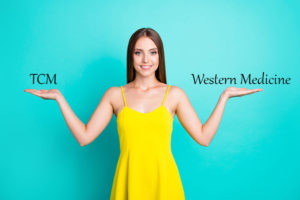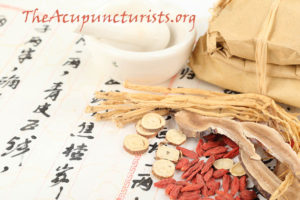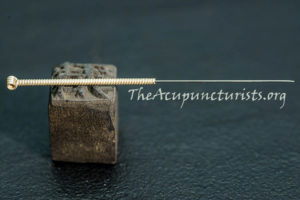 By Susan Tretakis – I guess it is an age thing, but lately, each day seems to bring yet another telephone call from a friend with the sad details of another disease, another treatment plan, and more stories of expensive and life changing medical procedures. Also lately, I am being asked more and more questions about Traditional Chinese Medicine. Considering I am not a doctor of TCM, this in itself is somewhat strange. It’s even more ironic when one knows that my graduate and post graduate training – as well as the last 40 years of my professional working life – are deeply entrenched in Western medicine and science.
By Susan Tretakis – I guess it is an age thing, but lately, each day seems to bring yet another telephone call from a friend with the sad details of another disease, another treatment plan, and more stories of expensive and life changing medical procedures. Also lately, I am being asked more and more questions about Traditional Chinese Medicine. Considering I am not a doctor of TCM, this in itself is somewhat strange. It’s even more ironic when one knows that my graduate and post graduate training – as well as the last 40 years of my professional working life – are deeply entrenched in Western medicine and science.
That said, I am extremely grateful that complementary medicine is coming into its own; I feel fortunate to be living in a time where there is so much information available and that there are caretakers of both persuasions – Western and TCM – who genuinely care for their patients. I am experiencing my own successful “marrying” of styles – and hear of others speaking of a renewed, collaborative effort by both TCM doctors and Western doctors. Slowly, but most assuredly, complementary medicine is gaining in popularity.
Western Medicine is defined as a health care system in which medical doctors – as well as other health care professionals, such as nurses, pharmacists and therapists – treat ailments and diseases using drug, radiation, or surgery. Western Medicine is also called allopathic medicine, biomedicine conventional medicine, mainstream medicine and orthodox medicine. Western Medicine is a technology-based system of analysis, differentiation and separation, focusing on various parts of the body.
Traditional Chinese Medicine, on the other hand, is an energy or Qi based medicine that looks at the body, mind and spirit from the perspective that an individual is “One” – that the parts of the body all work – or don’t work – together. According to Wikipedia, TCM is defined as “a style of traditional medicine built on a foundation of more than 2,500 years of Chinese medical practice that includes various forms of herbal medicine, acupuncture, massage (tui na), exercise (qigong), and dietary therapy, but recently also influenced by modern Western medicine. TCM is widely used in Greater China (where it has long been the standard system of medicine), and is becoming increasingly popular and recognized worldwide (where it is primarily approached as alternative medicine).”
A doctor of Western Medicine is usually interested in vital signs like one’s weight, height, body temperature, blood pressure and so on – as well as specific signs of disease. A doctor of TCM examines the whole person. A practitioner of TCM might be just as interested in a person’s physical issues as in other aspects of their lives, including their relationships with family, lifestyle, life stresses or spiritual state.
In the simplest of terms, TCM teaches you that if one can visualize your body and mind working together, your body will successfully “function”. If there is a disconnect, or a blockage within the body, there will be a “mal-function”. While a functioning body leads to physical and emotional “ease”, a mal-functioning body leads to “dis-ease”. This “dis-ease” leads to symptoms. In other words, a headache is a symptom of something else; depression is a symptom of something gone astray, aches and pains need to be identified an tracked back to their source.
Traditional Chinese Medicine embraces the concept that the best remedy for any illness is to avert it – the best cure for sickness is prevention. “The Nei Jing, a medical classic written in the second century B.C., states: Maintaining order rather than correcting disorder is the ultimate principle of wisdom. To cure disease is like digging a well when one already feels thirsty, or forging weapons after the war has begun.”
Check out that publication date again; it speak volumes about how TCM has been around.
 When I began studying, comparing and contrasting TCM to what I already knew – and my reservations about my own profession – my acupuncturist recommended a book for me to read. Entitled ‘Between Heaven and Earth, A Guide to Chinese Medicine’ written by Harriet Beinfeld and Efrem Korngold, it was – and still is – a life-time game changer for me. The book remains – along with my acupuncturist – a true guide – something I continually refer back to when I need to refine an idea, or to gather more information.
When I began studying, comparing and contrasting TCM to what I already knew – and my reservations about my own profession – my acupuncturist recommended a book for me to read. Entitled ‘Between Heaven and Earth, A Guide to Chinese Medicine’ written by Harriet Beinfeld and Efrem Korngold, it was – and still is – a life-time game changer for me. The book remains – along with my acupuncturist – a true guide – something I continually refer back to when I need to refine an idea, or to gather more information.
The authors expand on the Nei Jing text, writing that “The true physician teaches the Tao – how to live. Traditional Chinese doctors are trained to cultivate wellness as well as to correct ill health. Planning ahead, Chinese medicine knows that storms interrupt clear weather, that illness stalks and gains a foothold when we are vulnerable. Its strategy is to enable us to withstand the storm without becoming disabled by it and to accumulate resources in times of good weather, peace and plenty.”
Conventional Western Medicine, on the other hand, is based on modern biology and chemistry. Historians tend to agree that Western medicine began only with the advancement of modern science during the Age of Enlightenment. Utilizing new ideas and cutting edge technology and equipment, Western physicians built a system that is now the conventional medicine of our modern society.
Comparing and contrasting both modalities yields interesting – and informative – distinctions.
Western Medicine utilizes a “reductionist” approach. The complexity of the human body can be broken down into smaller units to be understood. Once the smaller units are understood, a bigger picture can be assembled from the smaller pieces. In contrast, TCM utilizes a holistic approach, believing that the body is comprised of dynamic and inter-dependent parts. In TCM, the only way to study the human body is to observe the whole system and try to see the whole picture.
Western Medicine sees the human body as a bio-chemical model. Since the human body is composed of bio-molecules, illnesses need to be treated with bio-molecules. TCM, on the other hand, sees the human body as a flowing energies. These energies are dynamic and interdependent; additionally, they undergo a continual exchange with the natural environment.
While Western Medicine emphasizes utilizing modern technologies and equipment to accurately measure the health of the body, TCM emphasizes the utilization of the doctors’ own sensory organs to gauge a patients’ overall condition.
Western Medicine typically uses chemical (pill) or surgical methods to remove the cause of illnesses. When the removal of the offending illness is not possible, Western medicine will try to keep the dysfunctions within an acceptable range, either with on-going treatments/drugs. TCM typically uses natural materials or physical stimulation to rebalance the body; attempting to promote the body’s own healing power instead of outside manipulation and/or control.
One of the biggest differences between TCM and Western Medicine is how the illness, or “dis-ease” is viewed by the respective practitioner. From the perspective of a Western practitioner, your specific concern – be it involve digestive issues, headaches, blepharitis, sore throat, eye health, depression, and/or anxiety – will be evaluated against the documentation and scientific research gathered previously. It is possible that since a number of people have the same complaint – or symptom – then one could be assigned to the same group of sufferers – and prescribed the same treatment – be it medication or surgery.
As a society, we have helped contribute to this behavior. Most of us do not want to know the “why” of why we are feeling ill, we want a fix, and if we’re honest, we wanted that fix yesterday. Ironically – so does TCM – but in this case, the TCM practitioner wishes the “quick fix” to be in the form of preventative behavior.
 The individualized approach of Traditional Chinese Medicine takes a bit longer; it requires the practitioner to discover as many sources of the “dis-ease” by identifying the “mal-function”. A single response may not be the answer; rather, a series of additions/ deletions to one’s diet and lifestyle may be needed. TCM differentiates between the types of pain as well as the types of reactions our body is showing us. For example, if we suffer from severe diarrhea in the morning, TCM would require that we look to what we ate and drank the day before; western practitioners would give us a prescription for medication to allow our bodies to regain control.
The individualized approach of Traditional Chinese Medicine takes a bit longer; it requires the practitioner to discover as many sources of the “dis-ease” by identifying the “mal-function”. A single response may not be the answer; rather, a series of additions/ deletions to one’s diet and lifestyle may be needed. TCM differentiates between the types of pain as well as the types of reactions our body is showing us. For example, if we suffer from severe diarrhea in the morning, TCM would require that we look to what we ate and drank the day before; western practitioners would give us a prescription for medication to allow our bodies to regain control.
It needs to be said here that it is my training as a psychologist that makes me more fully appreciate Traditional Chinese Medicine. To be perfectly candid, I am somewhat amazed as to how many people are on the same ant-depressant drug when their depressions vary from individual to individual. . I remember sitting in staff assessments where adolescents and young adults – and then senior citizens – were all classified as “one type” and then treated the same. It may be expedient for the caregiver/practitioner, but it is not in the best interests of the patient.
And that lesson stays with me; as does my appreciation for those drugs that allow me to get through the day with the least amount of suffering. I’m not an either/or person; I only want the best for me.
It’s important to realize that we need both Western and Chinese Medicine. We need our annual health and dental screenings and we need to be aware of our environment and our lifestyle choices. While I would definitely appreciate seeing my acupuncturist both before and after open heart or replacement joint surgery, I would have to side with Western technology with their operating rooms, anesthesia and skilled surgeons should such a need arise. However, I did choose not to have the strongly recommended laser surgery by my ophthalmologist to rid myself of chronic and annoying blepharitis (dry eye), choosing instead to use acupuncture and Chinese herbs. My decision was based on the fact that my acupuncturist also identified a connection between my excessive dry mouth and dry skin and sought to remedy that “blockage” of my energy.
For years, I subjected myself to cortisone shots for painful and debilitating sciatica; after reading about the potential side effects of continued shots, I opted out of conventional Western treatment and began the practice of Chinese cupping to manage my pain. For years, I purchased various eye drops for computer-tired, red and itchy eyes; I prefer to drink various teas and take the herbs recommended for eye health – because they have proven to work.
In these days of skyrocketing health costs, staying healthy is a necessity. With co-payments for drugs expected to increase as much as 40% by January 2019, everyone needs to identify what they need – individually – to stay healthy. There are those who tell me I pay too much for the “luxury” of organic food and they may be right. However, they choose to eat what they like and pay increasing co-payments for medications for migraines, diabetes, blood pressure as well as other co-pays for medical procedures and testing.
Let me end by referring back to the title of this post. It’s really not about choosing between Western Medicine and Traditional Chinese Medicine; it’s a decision about choosing to put your health front and center – and to know how to do so.
Sources:
- Dr. Landon Agoado, Care Wellness Center
- Wikipedia – Traditional Chinese Medicine
- Between Heaven and Earth, A Guide to Chinese Medicine, by Harriet Beinfeld, L.Ac., and Efrem Korngold, L.Ac., O.M.D., Ballantine Books, Random House, New York, 1991
- https://www.cancer.gov/publications/dictionaries/cancer-terms/def/western-medicine
- https://jech.bmj.com/content/55/10/762
- https://www.amcollege.edu/blog/chinese-medicine-vs-western-medicine
- https://nccih.nih.gov/health/whatiscam/chinesemed.htm
- https://www.tcmworld.org/tcm-and-western-medicine-true-complementary-care/
- https://www.victorchengtcm.com/what-is-the-difference-between-tcm-and-conventional-medicine/
- http://www.mosherhealth.com/mosher-health-system/chinese-medicine/chinese-versus-western
